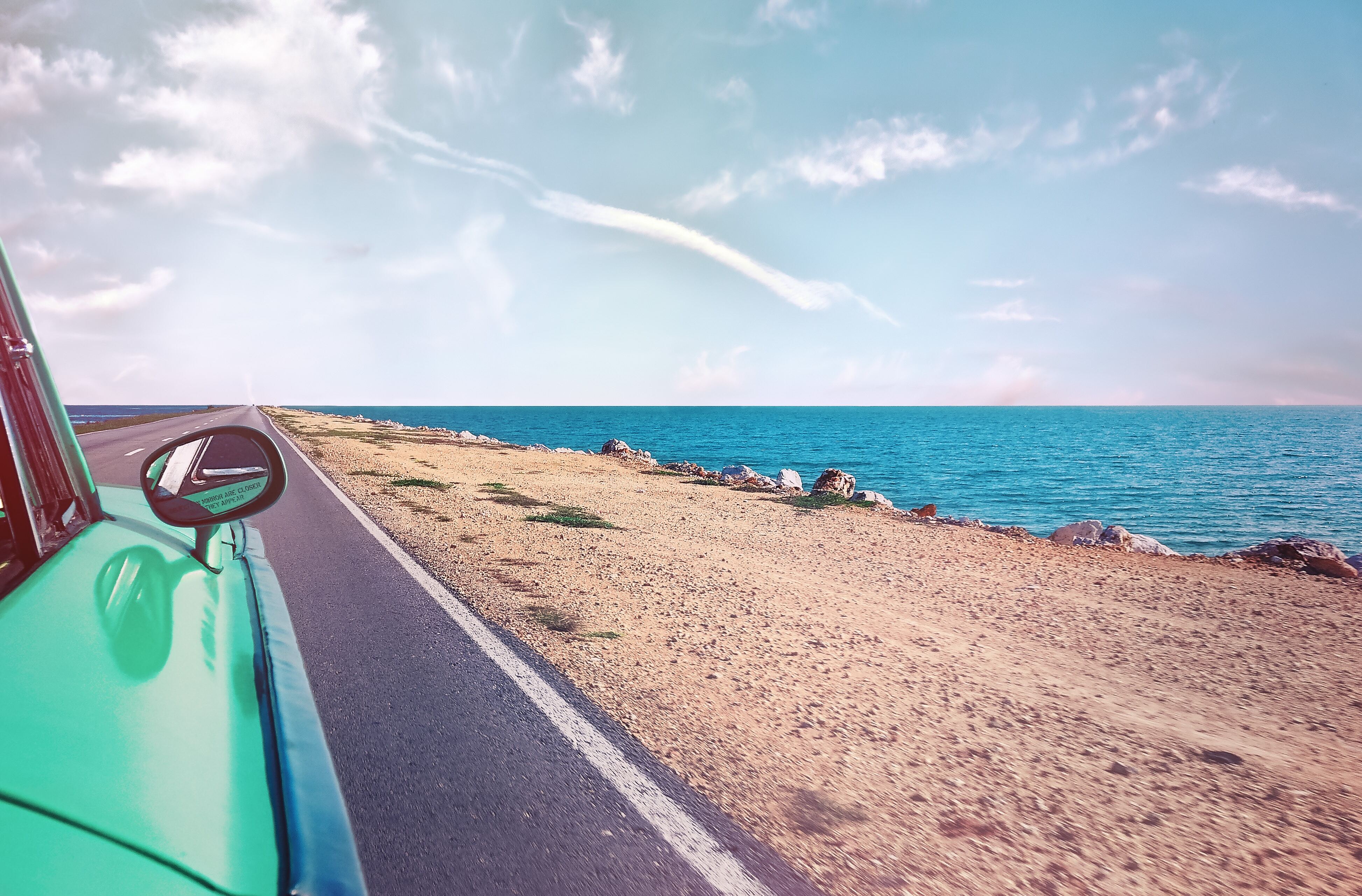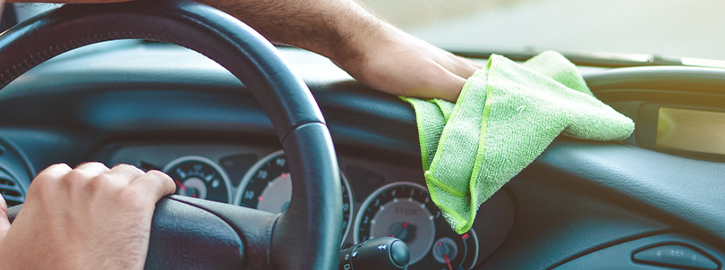10 Essential Car Health Checks for Summer Adventures | GoodbyeCar

Rev Up for Your Summer Road Trip: 10 Car Health Checks Not to Miss
Planning a summer road trip? Before you buckle up and hit the highway, it's crucial to give your car a thorough health check. In this blog post, we'll walk you through the essential car health checks you should perform to ensure a smooth and enjoyable journey. From inspecting your tyres and fluid levels to checking the cooling system and battery, our guide will equip you with the knowledge to keep your car running smoothly in the summer heat.
Check 1: Tyres
Tyres are an essential component of your car, and they require extra attention during the summer months. High temperatures can cause the air inside your tyres to expand, leading to overinflation. Overinflated tyres can affect your car's handling and increase the risk of a blowout.
On the other hand, underinflated tyres can lead to poor fuel economy and uneven wear, reducing the lifespan of your tyres. Therefore, it's crucial to check your tyre pressure regularly and ensure they're inflated to the recommended level. Not to mention, you can receive 3 penalty points on your driving licence, and be fined up to £2,500 per tyre if it’s not properly inflated or the tread pattern is worn. That means if all four tyres are found to be illegal, you could be fined £10,000.
Inspect the tread pattern on each tyre. If the tread is worn down to the wear indicators or if it appears uneven, it's time to replace your tyres. Adequate tread depth is crucial for maintaining traction, especially on wet roads.
Don't forget to inspect your spare tyre too! Ensure it is properly inflated and in good condition. There's nothing worse than getting a flat tyre and realising your spare is flat as well.
Check 2: Fluids
Fluids are the lifeblood of your car, and they play a critical role in keeping your car running smoothly. During the summer months, your car's fluids are under more strain due to the high temperatures.
Check your car's oil, coolant, brake, transmission and windscreen washer fluids before a big journey. If you notice any leaks or low levels, top them up or take your car to a mechanic for a check-up.
Check 3: Cooling System
Check the radiator and hoses for any leaks or damage. Make sure that the coolant level is correct and that the system is working properly. Ensure the radiator cap is in good condition. Consider flushing and refilling the coolant if it hasn't been done recently.
Maintaining a healthy cooling system is essential for preventing engine overheating and ensuring optimal performance during your summer road trip.
Check 4: Battery
Inspect the battery for any corrosion or loose connections. Corrosion can build up over time, so it’s a good idea to clean this. Use a battery-cleaning brush and a mixture of baking soda and water to gently clean the terminals and remove any corrosion. Be sure to disconnect the negative (-) terminal first and reconnect it last.
Extreme temperatures can affect battery performance, so consider having it tested to ensure it's in good condition. Use a multimeter to measure the battery voltage. A healthy battery typically reads around 12.6 volts. If the voltage is significantly lower, it may indicate a weak or discharged battery. You can also get the battery tested at a garage to ensure it’s operating optimally.
Even with a well-maintained battery, unexpected situations can occur, so it’s wise to bring jumper leads so you can jump-start your car.
It’s not just gas-powered cars that can be affected by the heat, extreme heat can affect EV batteries too, especially their range. However, you can minimise energy consumption by driving with a lighter load and driving in ECO mode.
Check 5: Lights
Check the headlights, taillights, brake lights, and turn signals. Make sure that they are all working properly and that the bulbs are not burnt out. This will ensure that other drivers can see you and that you can see the road ahead.
Plus, driving without proper working lights is illegal and can land you a hefty fine. Faulty brake lights can give you a £60 fine and 3 points on your licence. Driving without one headlight working could leave you with a £100 fine on the spot. And, if your indicators aren’t working, this could be classed as careless driving, meaning a whopping £2,500 fine depending on the severity of the situation.
Check 6: Windshield and Wipers
Check the wiper blades for any cracks or damage. Make sure that they are working properly and that the windshield is clean and free of any cracks or chips. This will ensure that you have good visibility during your drive.
Driving without any windscreen washer fluid could land you a £100 fine. If you’re in a car accident and it’s deemed you had restricted vision without washer fluid, you could be charged with careless driving, and receive a £100 fine.
Check 7: Air Conditioning
The last thing you want on a long journey in the summer is having no air conditioning in your car, so you might want to check it’s working properly before sweltering in the heat. If the air isn’t cold enough, it might need to be recharged. You can also check the refrigerant level. The low port should be between 25psi and 45psi, and the high port should be between 250psi and 400psi.
Another way to make sure the air conditioning is working efficiently is by cleaning the cabin air filter, or replacing if needed for better airflow.
Check 8: Brakes
Maintaining reliable brakes is crucial for your safety on the road. You’ll want to check the brake pads by looking through the openings in the wheel spokes or by removing the tyres if necessary, looking for any wear and tear.
Next, find the brake fluid reservoir under the hood and ensure the fluid level falls between the minimum and maximum markings. Another way to check the brakes is simply by using them. Make sure no one is around and test to see how well the brakes are working. Look out for any noise or vibration too, as this is a sign something’s wrong.
Check 9: Emergency Kit
Before going on a summer road trip you should pack an emergency kit in your car. This should include a first aid kit, a flashlight, a blanket, and some basic tools. This will ensure that you are prepared for any unexpected situations.
Check 10: Breakdown Cover
Even after doing all these car checks, breakdowns can still happen. Check that your breakdown cover is still in date, or purchase cover if you don’t have it. If the worst happens, you’ll save a fortune with your breakdown cover, than if you had to call a breakdown recovery on the day.
As you gear up for your summer road trip, taking the time to perform car health checks is essential for a smooth and worry-free journey. By following these ten tips, you'll ensure that your vehicle is in prime condition and ready to tackle the open road.
Want to read more automotive news? Check out our blog full of tips and tricks for your car.





